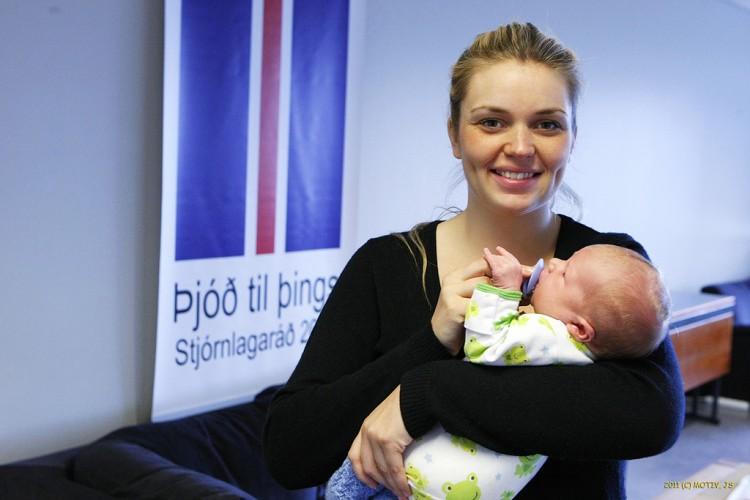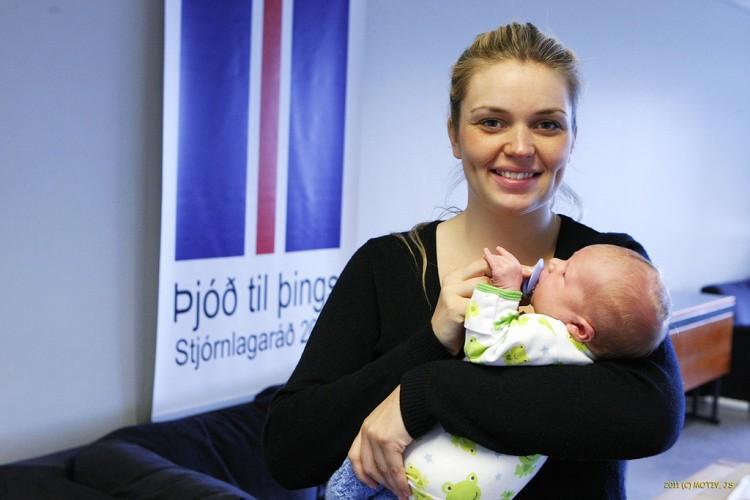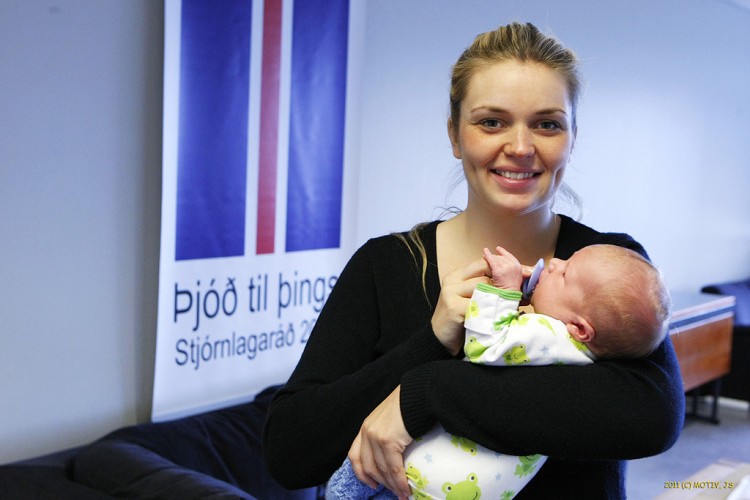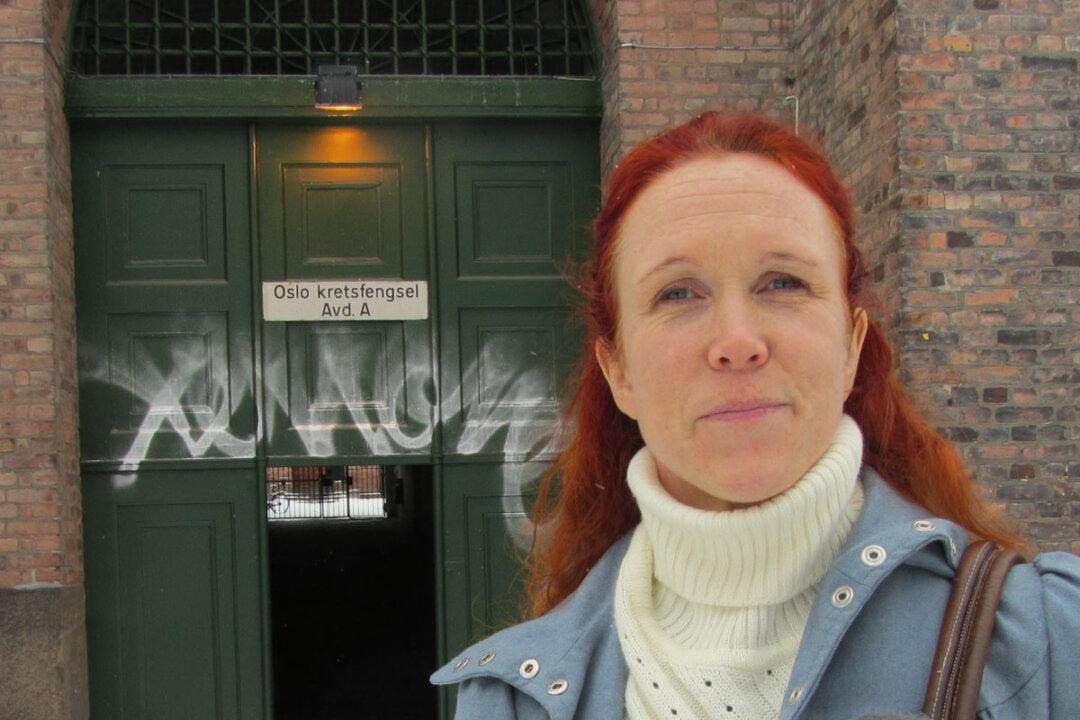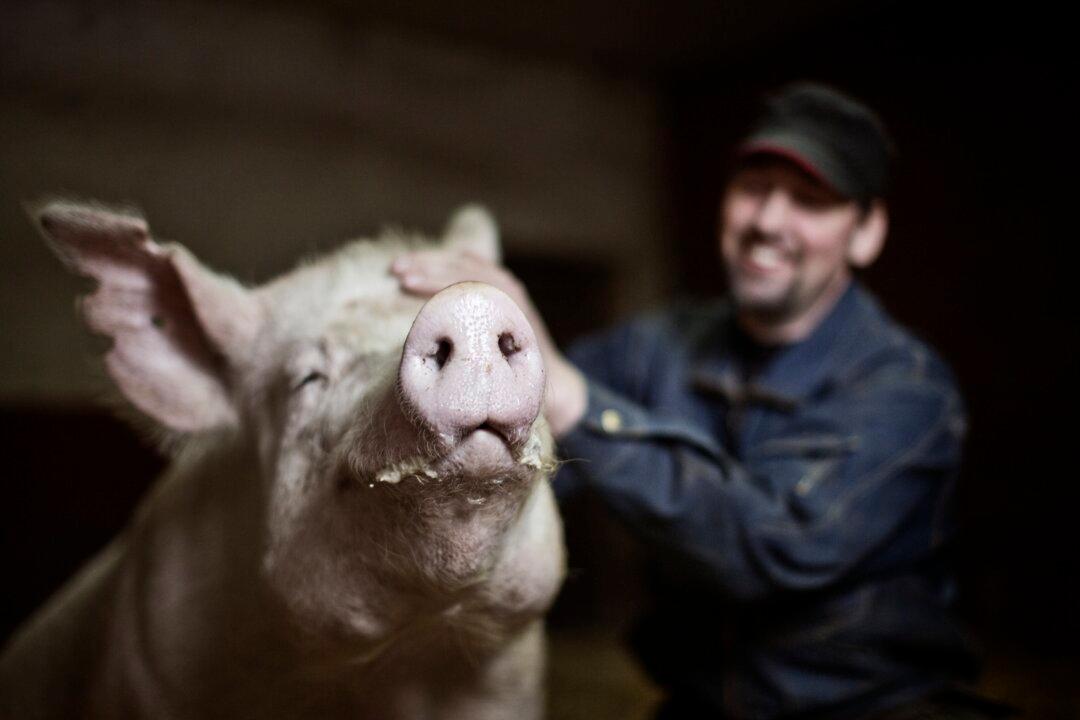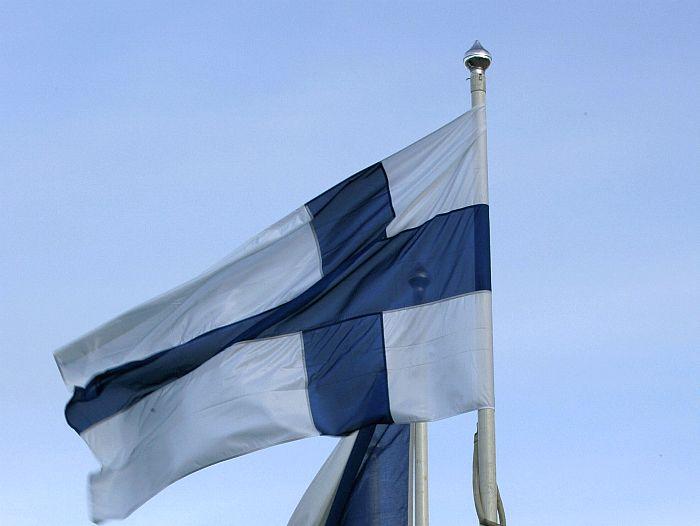When Iceland decided to create a proposal for a new constitution, Astros Signyjardottir took the chance to be a part of shaping Iceland’s future. She was elected as one of the 25 Icelandic citizens who would draft the new proposed constitution, in a transparent crowdsourced process.
“I was the youngest member, aged 24, when I got elected, so I considered it to be part of my responsibility to express the views of the younger generations in the country,” Signyjardottir said. “Since the constitution is something that we will, hopefully, live with for the next decades, I wanted to be sure that new and fresh views would be taken into account while it was being written.”
A national vote was held and the 25 members of the Constitutional Council were chosen from among 523 applicants.
The members came from different backgrounds and held different views on the constitution. The process of creating the draft bill was completely open for the general public to see. The council used social media outlets, such as Facebook, to keep citizens updated and garner feedback.
About two-thirds of voters in the national referendum of Oct. 20 supported the draft bill. If the draft, which is now before the Icelandic Parliament, is accepted, it will be the first constitution in global history created with full transparency and citizen participation.
Iceland’s prime minister, Johanna Siguroardottir, said in a statement that she hopes the bill can be adopted on Iceland’s national day, July 17, next year.
The ruling left, green coalition in the Icelandic parliament [the Althing] has been the driving force behind the new constitution. The conservative opposition would have rather seen a proposal created by the Parliament itself.
Among the skeptics is Iceland’s president, Olafur Ragnar Grimsson. He told Icelandic radio channel Ruv that he felt a change in the constitution demanded broad political support—which does not exist for the current draft bill, in his opinion.
Although the bill won two-thirds of the referendum votes, only about half of the Icelandic electorate of approximately 235,000 people voted.
Signyjardottir remains hopeful, however, that the constitution she helped draft will be a leap forward for the country.
The idea of a new constitution grew out of the financial meltdown in 2008. The three major Icelandic banks collapsed. During the political turbulence that followed, faith in the leading powers faltered; the demand for a new constitution emerged.
“After such a big collapse, of course, we need to look deep inside and see what went wrong and try to prevent something like that happening again,” Signyjardottir said. “We need to reshape our political system, and we need to reshape our society.”
Signyjardottir holds a bachelor degree in political science and a master’s degree in international relations; she was not a well-known person in Iceland before she was elected to the Constitutional Council. The process of drafting the constitution lasted from April to July of 2011.
“All our work was put online, on Facebook, and our website, and every Icelander could comment on our work there, or send us suggestions and thoughts,” Signyjardottir said. “We took all those comments and suggestions into our work and discussed them, and some of them actually made it into the final draft.”
The 12 parts of the proposal ensure a better system of checks and balances and more direct democracy, Signyjardottir said. Icelanders particularly supported one of the 12 parts: natural resources not privately owned would be declared national property.
Astros Signyjardottir thinks serving on the Constitutional Council will prove to be one of the greatest experiences of her life.
“Of course, it was a fantastic experience to be a part of such a big project,” she said. “I have never participated in such a big thing. I was pregnant during the time we were working, and I actually had my baby boy two weeks before we finished, so I have a little ‘constitution boy.’”
The Epoch Times publishes in 35 countries and in 19 languages. Subscribe to our e-newsletter.
